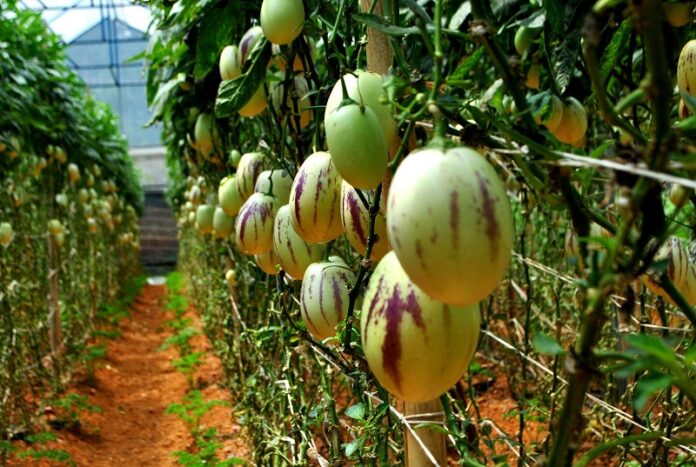In 2016, Zakayo Mogotio, a Molo-based farmer, ventured into Pepino melon farming after years of losing money in the tree tomato business.
Armed with Sh700, he started raising seedlings of Pepino melons and selling them to other farmers at Sh100 per seedling.
He would prepare the seedlings from cuttings obtained from mature plants on his farm, an exercise that would take a month to complete.
According to him, more farmers are getting attracted to the pepino melon agribusiness due to high market demand as more Kenyans have started noticing its health benefits.
The fruit is said to be essential in lowering cholesterol levels, weight loss, reducing risk of hypertension and stress as well as Promoting good cardiovascular health.
The pepino fruit resembles a melon in color, and its flavor recalls a succulent mixture of honeydew and cucumber.
The three main varieties of pepino melon grown in Kenya are golden pepino, Purple pepino, and Kiwi pepino.
I quit my job aged 32 in the 80s, I have never regretted farming Hass Avocados
According to Farmers Trend, pepinos are often grown as a greenhouse crop, and the growing techniques commonly used for tomatoes can also be used for Pepino cultivation.
They thrive in a variety of regions in Kenya, but the main production areas are the Central Highlands, the Rift Valley, and the Western Highlands.
The fruit has a fast growth rate and bears fruit within 4 to 6 months after planting. The best time to harvest pepino melons is during the cool season, from June to September.
Common pests are aphids, whiteflies, thrips, spider mites, fruit flies, and nematodes, while diseases include powdery mildew, bacterial wilt, leaf spot, cucumber mosaic virus, and tomato-spotted wilt virus.
Pests and diseases can be managed by using clean planting material and resistant varieties, as well as removing and destroying infected plants and plant debris to prevent the spread of diseases.
The main market for pepino melon in Kenya is domestic, and prices vary depending on the time of year, the quality of the fruit, and the market.
“You can calculate your total revenues assuming a yield of 12 tonnes per acre and a market price of Sh50 per kilo,” says Dedan Maina, a Pepino melon farmer.








